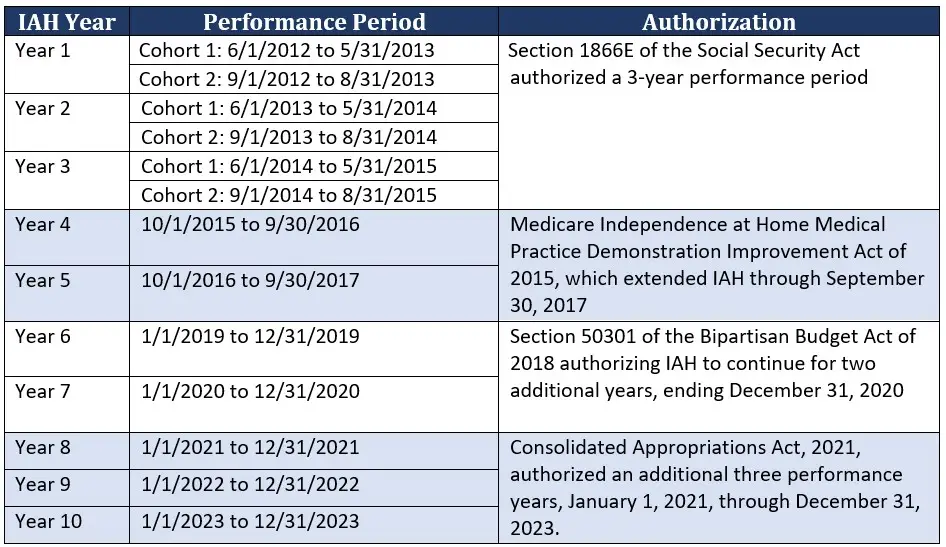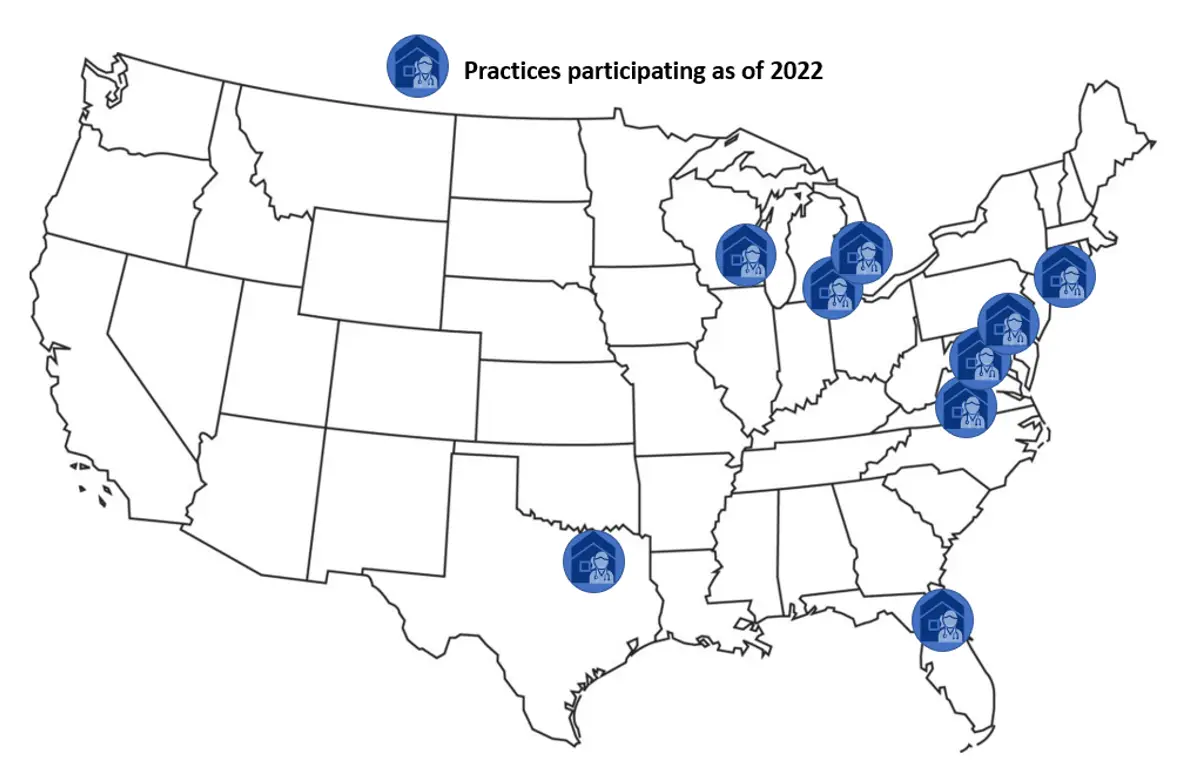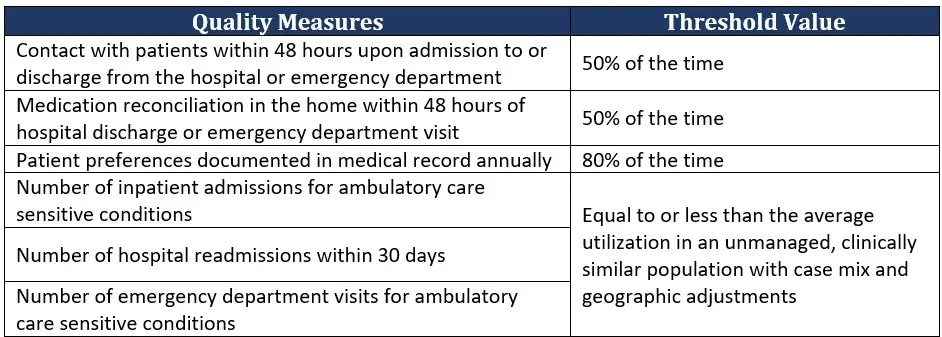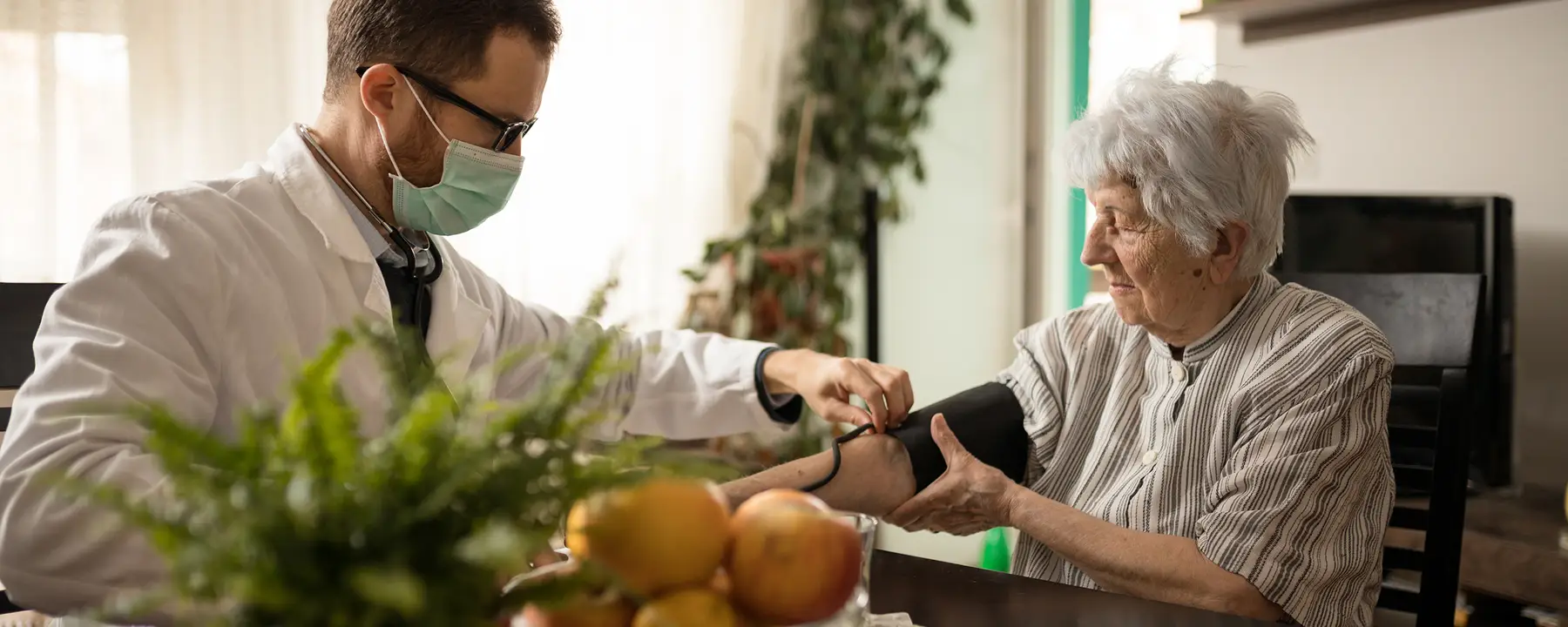Providing High Quality Primary Care at Home for Medicare Beneficiaries
Objective
Through the Independence at Home (IAH) Demonstration, the Centers for Medicare & Medicaid Services (CMS) aims to determine whether delivering home-based primary care to chronically ill Medicare beneficiaries improves health outcomes and reduces Medicare costs.
Approach
RTI is working with CMS to implement the IAH Demonstration by providing a Help Desk, an electronic reporting system, and in-person, email, and telephone guidance to support participating practices in meeting the requirements of IAH. RTI’s support includes collecting data from practices to assess quality measurement and calculate earned shared savings incentives.
Impact
IAH is the longest-running primary care demonstration investigating the potential for in-home care for chronically ill Medicare beneficiaries. As a Medicare alternative payment model, IAH serves as an example of how care can be tailored to meet the individual needs of beneficiaries while improving care and reducing costs.
What is Home-Based Primary Care?
In the United States, it is estimated that 6% of all older adults never or rarely leave their homes. These older adults are much more likely than their peers to have multiple chronic conditions, greater hospitalization frequency, and challenges with accessing health services. The process of leaving home, seeking transportation, and navigating a clinical setting not only creates physical and emotional strain but also may require caregiver assistance or other types of support. In the absence of assistance, older adults may not get the health care they need.
Home-based primary care is one potential solution for older patients who have frequent health care needs and face barriers to obtaining care in traditional settings. Bringing basic health services to the home results in:
- Reducing patients’ burden of leaving home
- Ensuring that their complex conditions are monitored and treated
- Helping them avoid unnecessary use of emergency departments and hospital stays
- Giving practitioners a more complete picture of patient health and related social determinants.
Independence at Home: Project History and Description
Authorization by Congress
The IAH Demonstration was first authorized by Congress in 2012 and has since been extended three times.

Participating IAH Demonstration Sites
There are currently nine sites participating in the Demonstration—six individual practices and one consortium of three practices. These practices have a history of providing primary care in the homes of beneficiaries who have high-cost, chronic care needs.

IAH Demonstration Participating Practices as of 2022
IAH Beneficiary Eligibility, Quality Measures and Performance Thresholds
The beneficiaries enrolled in IAH must:
- Be entitled to Medicare benefits under Part A and be enrolled in benefits under Part B
- Not be enrolled in a Medicare Advantage plan or a PACE program
- Have two or more chronic conditions
- Have had a hospital admission within the past 12 months
- Have received acute or subacute rehabilitation services within the past 12 months
- Have two or more functional dependencies requiring the assistance of another person
- Be informed of their eligibility and agree to participate
Beneficiaries’ care is tracked using six quality measures. Practices must meet performance thresholds on at least three of the quality measures and must meet a minimum cost savings requirement to be eligible to receive incentive payments.

Developing and Supporting Innovative Care Models: RTI’s Contribution to the IAH Demonstration
RTI’s team brings a breadth and depth of skills and subject matter expertise in home-based primary care, data analytics, and quality of care measurement. Our team of experts also has a deep understanding of person-centeredness and the social determinants of health that may affect home-based care delivery. Since inception of the IAH Demonstration, RTI has contributed to learning from this model and its longevity.
RTI researchers have supported the project by:
- Participating in the design and development of the Demonstration
- Providing continuous implementation support across all years
- Understanding and supporting the needs of participating care providers
- Facilitating communication with CMS
- Incorporating input into the evolution of shared savings calculations and the application of quality measures
This work showcases RTI’s ability to act as a critical thought partner in developing and supporting the evolution of innovative care models. IAH has drawn tremendous attention from clinicians, members of Congress, and other key stakeholders. It brings an important legacy, exploring the potential for in-home care for chronically ill Medicare beneficiaries in a shifting health care landscape. As patient-centered care practices continue to evolve, IAH will serve as an example of how care quality can be improved and tailored to meet the individual needs of beneficiaries.
Our Work in Health Care Transformation
RTI has an extensive portfolio related to alternative payment models.
- Centers for Medicare & Medicaid Services (CMS)





